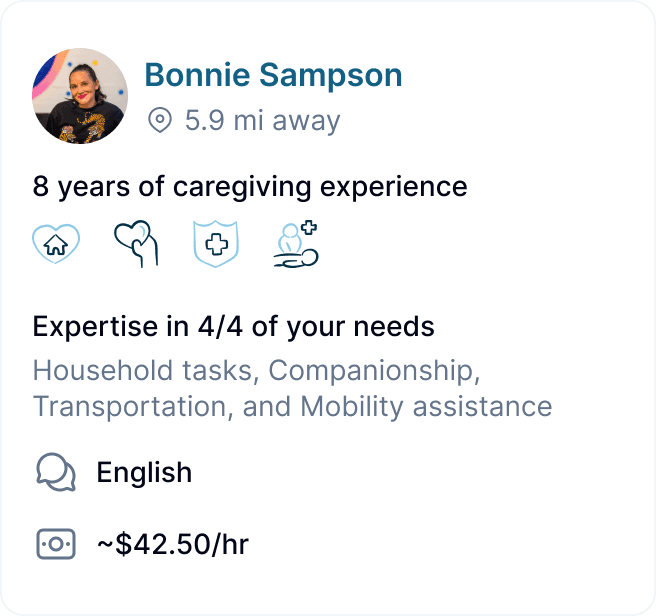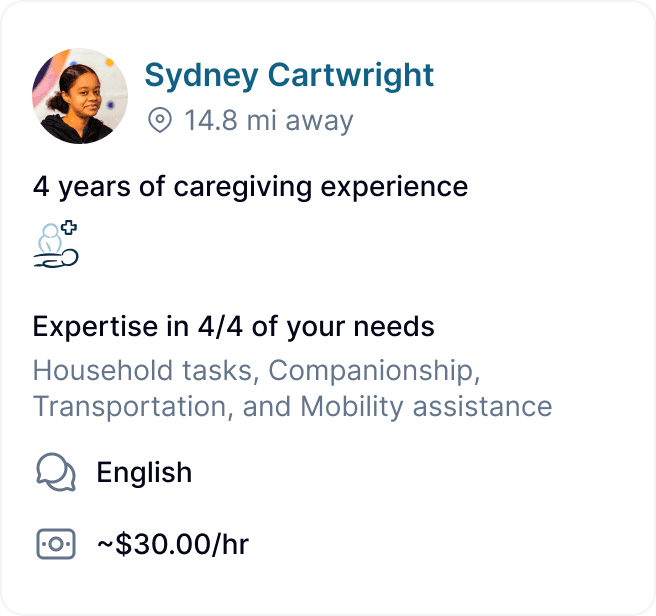When Siblings Disagree About Care: Tips for Reaching Consensus



Caring for an aging parent or loved one is a profound responsibility that often brings families closer together—but it can also be a source of significant conflict. When siblings disagree about the best approach to care, emotions can run high, and the stakes feel enormous.
Disagreements may arise over practical issues, such as who provides hands-on care, financial contributions, or even fundamental beliefs about what’s best for the parent. The good news: with the right strategies, families can move from discord to consensus, ensuring their loved one receives the support they deserve.
Why Do Sibling Conflicts Happen?
Sibling conflict over caregiving is common. Each person brings their own perspective, shaped by their relationship with the parent, personal values, availability, and sometimes, unresolved childhood dynamics. For example, one sibling may be in denial about a parent’s declining health, while another feels overwhelmed by the practical realities of daily care. These differences can quickly escalate if not addressed openly.
The Importance of a Unified Caregiving Strategy
A unified approach to caregiving is crucial for managing the emotional, practical, and financial aspects of care. Without consensus, families risk not only fractured relationships but also inconsistent or inadequate care for their loved one. Agreeing on a strategy helps ensure everyone is on the same page and reduces the likelihood of misunderstandings or resentment.
Tips for Reaching Consensus
1. Prioritize Open, Honest Communication
Effective communication is the foundation of any successful caregiving arrangement. Schedule regular family meetings—whether in person or virtually—to discuss updates, share concerns, and make decisions collaboratively. Encourage each sibling to express their feelings and listen actively to one another. Sometimes, putting emotional responses aside is necessary to foster better cooperation.
Creating a comprehensive senior care plan can help structure those family meetings.
2. Acknowledge Emotional Perspectives
Caregiving isn’t just about logistics; it’s deeply emotional. Recognize that siblings may process the situation differently. Some may feel guilt, others anger or denial. Establishing a support network, such as family therapy or counseling, can help siblings process emotions and reduce conflict.
3. Delegate Tasks Based on Strengths and Availability
Not every sibling can contribute in the same way. Some may live nearby and provide hands-on care, while others contribute financially or manage paperwork. Clearly delegate tasks based on each person’s strengths, availability, and willingness to contribute. This approach helps prevent burnout and resentment.
4. Document Decisions and Care Plans
Keep thorough records of all decisions, care plans, and financial arrangements. Documentation helps avoid misunderstandings and provides a reference point if disagreements arise in the future.
Download Clara's free care plan to use a template!
5. Consider Professional Mediation
If discussions stall or become heated, bringing in a neutral third party—such as a professional mediator or care manager—can help facilitate productive conversations and guide the family toward consensus. Mediation can be especially helpful when siblings are at an impasse over critical decisions.
6. Explore Flexible Care Solutions
Sometimes, consensus is easier when families have options. For instance, hiring a professional caregiver can relieve pressure on family members and ensure quality care. Platforms like Clara Home Care make it easy to find vetted, background-checked caregivers, often at a lower cost than traditional agencies. Clara’s technology-driven approach allows families to tailor care to their loved one’s needs, with the flexibility to adjust as circumstances change.
7. Stay Focused on the Parent’s Wishes and Best Interests
Above all, keep the focus on what your loved one wants and needs. If possible, involving your loved one in the decision making can be a powerful tool for driving consensus. When siblings disagree, returning to the parent’s expressed wishes or best interests can help ground discussions and remind everyone of the shared goal: providing the best possible care.
Practical Steps for Moving Forward
Schedule Regular Check-Ins: Even after an initial plan is set, continue meeting regularly to review how things are going and make adjustments as needed.
Share Information Transparently: Use shared documents or group chats to keep everyone updated on appointments, expenses, and changes in care.
Be Willing to Compromise: Rarely will everyone get exactly what they want. Be prepared to find middle ground.
Recognize and Appreciate Each Other’s Contributions: Express gratitude for each sibling’s efforts, whether big or small. A little appreciation goes a long way toward maintaining goodwill.
Conclusion
Disagreements among siblings about caregiving are natural, but they don’t have to derail your family’s efforts. By embracing open communication, sharing responsibilities, and seeking outside support when needed, families can reach consensus and provide their loved one with the compassionate care they deserve.
With resources like Clara Home Care, finding the right caregiver and managing the logistics has never been easier—freeing siblings to focus on what matters most: supporting each other and their loved one through every stage of the journey.
At Clara Home Care, we help seniors and their families find more affordable home care by making it easy to directly employ a caregiver from our network of trusted, vetted professionals. Reach out to us today to learn how we can support your family's needs.
Caring for an aging parent or loved one is a profound responsibility that often brings families closer together—but it can also be a source of significant conflict. When siblings disagree about the best approach to care, emotions can run high, and the stakes feel enormous.
Disagreements may arise over practical issues, such as who provides hands-on care, financial contributions, or even fundamental beliefs about what’s best for the parent. The good news: with the right strategies, families can move from discord to consensus, ensuring their loved one receives the support they deserve.
Why Do Sibling Conflicts Happen?
Sibling conflict over caregiving is common. Each person brings their own perspective, shaped by their relationship with the parent, personal values, availability, and sometimes, unresolved childhood dynamics. For example, one sibling may be in denial about a parent’s declining health, while another feels overwhelmed by the practical realities of daily care. These differences can quickly escalate if not addressed openly.
The Importance of a Unified Caregiving Strategy
A unified approach to caregiving is crucial for managing the emotional, practical, and financial aspects of care. Without consensus, families risk not only fractured relationships but also inconsistent or inadequate care for their loved one. Agreeing on a strategy helps ensure everyone is on the same page and reduces the likelihood of misunderstandings or resentment.
Tips for Reaching Consensus
1. Prioritize Open, Honest Communication
Effective communication is the foundation of any successful caregiving arrangement. Schedule regular family meetings—whether in person or virtually—to discuss updates, share concerns, and make decisions collaboratively. Encourage each sibling to express their feelings and listen actively to one another. Sometimes, putting emotional responses aside is necessary to foster better cooperation.
Creating a comprehensive senior care plan can help structure those family meetings.
2. Acknowledge Emotional Perspectives
Caregiving isn’t just about logistics; it’s deeply emotional. Recognize that siblings may process the situation differently. Some may feel guilt, others anger or denial. Establishing a support network, such as family therapy or counseling, can help siblings process emotions and reduce conflict.
3. Delegate Tasks Based on Strengths and Availability
Not every sibling can contribute in the same way. Some may live nearby and provide hands-on care, while others contribute financially or manage paperwork. Clearly delegate tasks based on each person’s strengths, availability, and willingness to contribute. This approach helps prevent burnout and resentment.
4. Document Decisions and Care Plans
Keep thorough records of all decisions, care plans, and financial arrangements. Documentation helps avoid misunderstandings and provides a reference point if disagreements arise in the future.
Download Clara's free care plan to use a template!
5. Consider Professional Mediation
If discussions stall or become heated, bringing in a neutral third party—such as a professional mediator or care manager—can help facilitate productive conversations and guide the family toward consensus. Mediation can be especially helpful when siblings are at an impasse over critical decisions.
6. Explore Flexible Care Solutions
Sometimes, consensus is easier when families have options. For instance, hiring a professional caregiver can relieve pressure on family members and ensure quality care. Platforms like Clara Home Care make it easy to find vetted, background-checked caregivers, often at a lower cost than traditional agencies. Clara’s technology-driven approach allows families to tailor care to their loved one’s needs, with the flexibility to adjust as circumstances change.
7. Stay Focused on the Parent’s Wishes and Best Interests
Above all, keep the focus on what your loved one wants and needs. If possible, involving your loved one in the decision making can be a powerful tool for driving consensus. When siblings disagree, returning to the parent’s expressed wishes or best interests can help ground discussions and remind everyone of the shared goal: providing the best possible care.
Practical Steps for Moving Forward
Schedule Regular Check-Ins: Even after an initial plan is set, continue meeting regularly to review how things are going and make adjustments as needed.
Share Information Transparently: Use shared documents or group chats to keep everyone updated on appointments, expenses, and changes in care.
Be Willing to Compromise: Rarely will everyone get exactly what they want. Be prepared to find middle ground.
Recognize and Appreciate Each Other’s Contributions: Express gratitude for each sibling’s efforts, whether big or small. A little appreciation goes a long way toward maintaining goodwill.
Conclusion
Disagreements among siblings about caregiving are natural, but they don’t have to derail your family’s efforts. By embracing open communication, sharing responsibilities, and seeking outside support when needed, families can reach consensus and provide their loved one with the compassionate care they deserve.
With resources like Clara Home Care, finding the right caregiver and managing the logistics has never been easier—freeing siblings to focus on what matters most: supporting each other and their loved one through every stage of the journey.
At Clara Home Care, we help seniors and their families find more affordable home care by making it easy to directly employ a caregiver from our network of trusted, vetted professionals. Reach out to us today to learn how we can support your family's needs.
Caring for an aging parent or loved one is a profound responsibility that often brings families closer together—but it can also be a source of significant conflict. When siblings disagree about the best approach to care, emotions can run high, and the stakes feel enormous.
Disagreements may arise over practical issues, such as who provides hands-on care, financial contributions, or even fundamental beliefs about what’s best for the parent. The good news: with the right strategies, families can move from discord to consensus, ensuring their loved one receives the support they deserve.
Why Do Sibling Conflicts Happen?
Sibling conflict over caregiving is common. Each person brings their own perspective, shaped by their relationship with the parent, personal values, availability, and sometimes, unresolved childhood dynamics. For example, one sibling may be in denial about a parent’s declining health, while another feels overwhelmed by the practical realities of daily care. These differences can quickly escalate if not addressed openly.
The Importance of a Unified Caregiving Strategy
A unified approach to caregiving is crucial for managing the emotional, practical, and financial aspects of care. Without consensus, families risk not only fractured relationships but also inconsistent or inadequate care for their loved one. Agreeing on a strategy helps ensure everyone is on the same page and reduces the likelihood of misunderstandings or resentment.
Tips for Reaching Consensus
1. Prioritize Open, Honest Communication
Effective communication is the foundation of any successful caregiving arrangement. Schedule regular family meetings—whether in person or virtually—to discuss updates, share concerns, and make decisions collaboratively. Encourage each sibling to express their feelings and listen actively to one another. Sometimes, putting emotional responses aside is necessary to foster better cooperation.
Creating a comprehensive senior care plan can help structure those family meetings.
2. Acknowledge Emotional Perspectives
Caregiving isn’t just about logistics; it’s deeply emotional. Recognize that siblings may process the situation differently. Some may feel guilt, others anger or denial. Establishing a support network, such as family therapy or counseling, can help siblings process emotions and reduce conflict.
3. Delegate Tasks Based on Strengths and Availability
Not every sibling can contribute in the same way. Some may live nearby and provide hands-on care, while others contribute financially or manage paperwork. Clearly delegate tasks based on each person’s strengths, availability, and willingness to contribute. This approach helps prevent burnout and resentment.
4. Document Decisions and Care Plans
Keep thorough records of all decisions, care plans, and financial arrangements. Documentation helps avoid misunderstandings and provides a reference point if disagreements arise in the future.
Download Clara's free care plan to use a template!
5. Consider Professional Mediation
If discussions stall or become heated, bringing in a neutral third party—such as a professional mediator or care manager—can help facilitate productive conversations and guide the family toward consensus. Mediation can be especially helpful when siblings are at an impasse over critical decisions.
6. Explore Flexible Care Solutions
Sometimes, consensus is easier when families have options. For instance, hiring a professional caregiver can relieve pressure on family members and ensure quality care. Platforms like Clara Home Care make it easy to find vetted, background-checked caregivers, often at a lower cost than traditional agencies. Clara’s technology-driven approach allows families to tailor care to their loved one’s needs, with the flexibility to adjust as circumstances change.
7. Stay Focused on the Parent’s Wishes and Best Interests
Above all, keep the focus on what your loved one wants and needs. If possible, involving your loved one in the decision making can be a powerful tool for driving consensus. When siblings disagree, returning to the parent’s expressed wishes or best interests can help ground discussions and remind everyone of the shared goal: providing the best possible care.
Practical Steps for Moving Forward
Schedule Regular Check-Ins: Even after an initial plan is set, continue meeting regularly to review how things are going and make adjustments as needed.
Share Information Transparently: Use shared documents or group chats to keep everyone updated on appointments, expenses, and changes in care.
Be Willing to Compromise: Rarely will everyone get exactly what they want. Be prepared to find middle ground.
Recognize and Appreciate Each Other’s Contributions: Express gratitude for each sibling’s efforts, whether big or small. A little appreciation goes a long way toward maintaining goodwill.
Conclusion
Disagreements among siblings about caregiving are natural, but they don’t have to derail your family’s efforts. By embracing open communication, sharing responsibilities, and seeking outside support when needed, families can reach consensus and provide their loved one with the compassionate care they deserve.
With resources like Clara Home Care, finding the right caregiver and managing the logistics has never been easier—freeing siblings to focus on what matters most: supporting each other and their loved one through every stage of the journey.
At Clara Home Care, we help seniors and their families find more affordable home care by making it easy to directly employ a caregiver from our network of trusted, vetted professionals. Reach out to us today to learn how we can support your family's needs.
More about caring for family
More about caring for family


Managing Caregiver Expectations and Family Boundaries



Clara Editorial Team


Smart Home Devices for Aging in Place: What’s Worth the Investment in 2025?



Clara Editorial Team


Aging Parents and Elder Care: A Starter Pack for Care Novices



Lowrie Hilladakis


Can a Family Member Be Paid to Be a Caretaker in California?



Clara Editorial Team


When Is It Time for Assisted Living—or Is In-Home Care the Better Choice?



Clara Editorial Team


Making Tough Choices Easier: The Power of Advance Care Planning



Lowrie Hilladakis


Understanding the Emotional Impact of Caring for Aging Parents



Vanessa Bustos


Balancing Work and Caregiving: Strategies for Busy Families



Vanessa Bustos


Coordinating Long-Distance Care: A Guide to Supporting Loved Ones from Afar



Jon Levinson


Setting Boundaries Without Guilt: A Family Caregiver's Guide



Vanessa Bustos
GEt started for free
Better care starts with Clara.
Find, hire, and pay top-notch caregivers without the headache for a price that fits your budget.



GEt started for free
Better care starts with Clara.
Find, hire, and pay top-notch caregivers without the headache for a price that fits your budget.



GEt started for free
Better care starts with Clara.
Find, hire, and pay top-notch caregivers without the headache for a price that fits your budget.

